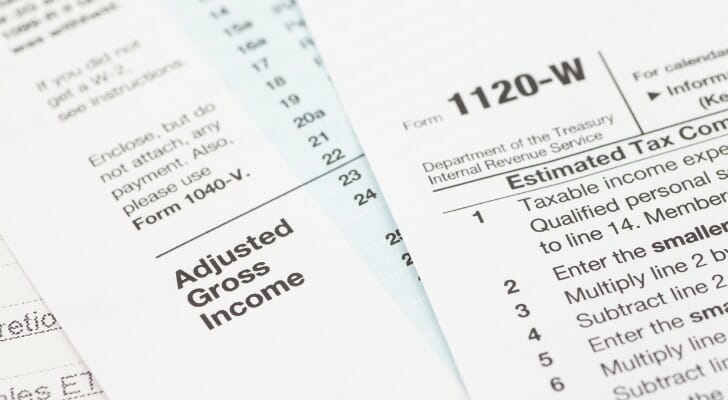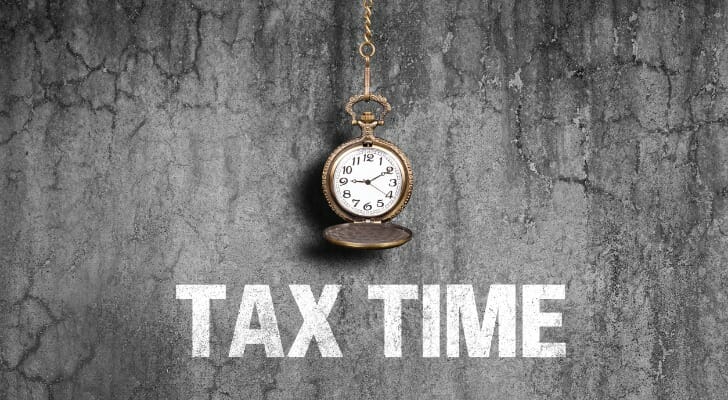Business Interest Deductions Under the CARES Act
The CARES Act has modified the tax code to help business owners hit financially by the COVID-19 pandemic. One key change involves the rules for business interest deductions. That change expands guidelines established by...Monday, April 20th 2020, 9:04 am
By Rebecca Lake
 The CARES Act has modified the tax code to help business owners hit financially by the COVID-19 pandemic. One key change involves the rules for business interest deductions. That change expands guidelines established by the Tax Cuts and Jobs Act. These changes, like other business-focused provisions of the CARES Act, are designed to provide some financial relief for businesses that have experienced a drop in revenue.
The CARES Act has modified the tax code to help business owners hit financially by the COVID-19 pandemic. One key change involves the rules for business interest deductions. That change expands guidelines established by the Tax Cuts and Jobs Act. These changes, like other business-focused provisions of the CARES Act, are designed to provide some financial relief for businesses that have experienced a drop in revenue.
Business Interest Deduction, Explained
Running a business and maintaining a positive cash flow sometimes means borrowing money to make investments and expand. If you have one or more business loans, the interest you pay on those loans can be deducted on your taxes. Deductions help your business by reducing your taxable income for the year. Less taxable income could mean less tax you have to pay, which can benefit your bottom line.
The Tax Cuts and Jobs Act placed a limit on business interest deductions. Under the act, businesses are generally limited to deducting business interest income, up to 30% of adjusted taxable income (ATI).
ATI represents a taxpayer’s earnings before interest, taxes, depreciation, amortization and depletion are factored in. To determine your business’s ATI, you’d calculate your net taxable income then add back in the following:
- Business interest expense
- Amortization
- Depreciation
- Depletion
- Capital loss carrybacks or carryovers
Once you have that total you’d then subtract business interest income and the lesser of gains realized on the sale of business assets or your deductions for depreciation, amortization and depletion taken for that property beginning in the 2018 tax year or later.
The new rules for business interest deductions under the CARES Act temporarily increase the amount that eligible businesses can deduct from their ATI.
New CARES Act Rules for Business Interest DeductionsThe CARES Act increases the ceiling for business interest deductions from 30% to 50% of ATI for tax years 2019 and 2020. This allows businesses to take a larger deduction for business interest expenses to help reduce their tax liability for those years.
The new temporary rule applies to most businesses, excluding partnerships. If your business operates as a partnership, you’re still subject to the 30% limitation for the 2019 tax year. Excess business interest expense can be passed through to individual partners or carried forward. For the 2020 tax year, partners can take the 50% deduction for business interest expense. Any remaining business interest expense could be carried forward.
This election is irrevocable, which means if your business opts to take advantage of the increased limit for deducting business interest, you can’t change it. In 2021, the limit will revert back to the 30% level. Additional tax changes are set to take effect in 2022 when the calculation for ATI changes. Beginning in that tax year, ATI will be calculated as taxable income plus interest expense, with no adjustment for depreciation or amortization.
The CARES Act rules also allow you to use your 2019 ATI to calculate your 2020 limitation. That could help if you expect your ATI for 2020 to be lower than the previous year.
How to Claim Business Interest Expense AdjustmentsThe 50% ATI business interest deduction election is voluntary. But if you think your business could benefit, you’ll just need to make that election when filing your taxes. Form 8890, Limitation on Business Interest Expense, is where this election is recorded. You’d complete this form (or have your accountant do so), then attach it to your tax return.
That’s easy enough if you haven’t filed your 2019 taxes yet. Remember, you have until July 15, 2020, to file your income tax return for the 2019 tax year. If you’ve already filed, you can amend your tax return to take advantage of the election. If you operate as a sole proprietor, you’d use Form 1040-X to amend your return. Corporations would use Form 1120-X while S-corporations would use Form 1120-S.
Consider Talking to a Tax Professional FirstThe business interest deduction rules created by the CARES Act may be more beneficial to some businesses than others. If you’re unsure just how much of a tax break you could realize, talking to your accountant or tax preparer could be a wise move. They can run the numbers, based on your 2019 business income and what you’re projecting for 2020, to see how much the increased deduction limit would be worth to you. It’s also worth talking to a financial advisor for a more holistic view of your finances.
A tax professional can also walk you through other key tax benefits for small businesses associated with the CARES Act. For example, the act also modified the guidelines for the ATI as it applies to corporations. The Employee Retention Credit, introduced by the CARES Act, allows business owners to claim what’s effectively a payroll tax credit if they had to shut down because of the COVID-19 pandemic. Payroll tax payments are also temporarily suspended, with deferred amounts due in full by Dec. 31, 2022.
These tax benefits could help to reduce what you owe in taxes for the year or potentially even allow you to net a refund. Either way, the tax savings could help keep your business afloat if you’re operating on a reduced capacity or not at all because of coronavirus.
The Bottom LineThe business interest deduction CARES Act rules could be useful if your revenues have dropped significantly compared to 2019. If you have a partnership, your ability to take advantage of the new guidelines is limited but it’s still worth looking into to see what it may yield for your business. Taking advantage of CARES Act tax breaks, along with other benefits such as emergency loan assistance through the Small Business Administration, could make navigating a tough economic time easier.
Tips for Small Business Owners- Many financial advisors specialize in working with business owners. Finding the right financial advisor who fits your needs doesn’t have to be hard. SmartAsset’s free tool matches you with financial advisors in your area in five minutes. If you’re ready to be matched with local advisors who will help you achieve your financial goals, get started now.
- In addition to deducting interest, consider taking advantage of the SBA’s various loan programs, including the forgivable PPP loan.
Photo credit: ©iStock.com/Sefa kart, ©iStock.com/Torsakarin, ©iStock.com/triloks
The post Business Interest Deductions Under the CARES Act appeared first on SmartAsset Blog.
Information contained on this page is provided by an independent third-party content provider. Frankly and this Site make no warranties or representations in connection therewith. If you are affiliated with this page and would like it removed please contact pressreleases@franklymedia.com
More Like This
April 20th, 2020
December 13th, 2024
December 13th, 2024
December 13th, 2024
Top Headlines
December 13th, 2024
December 13th, 2024
December 13th, 2024
December 13th, 2024









